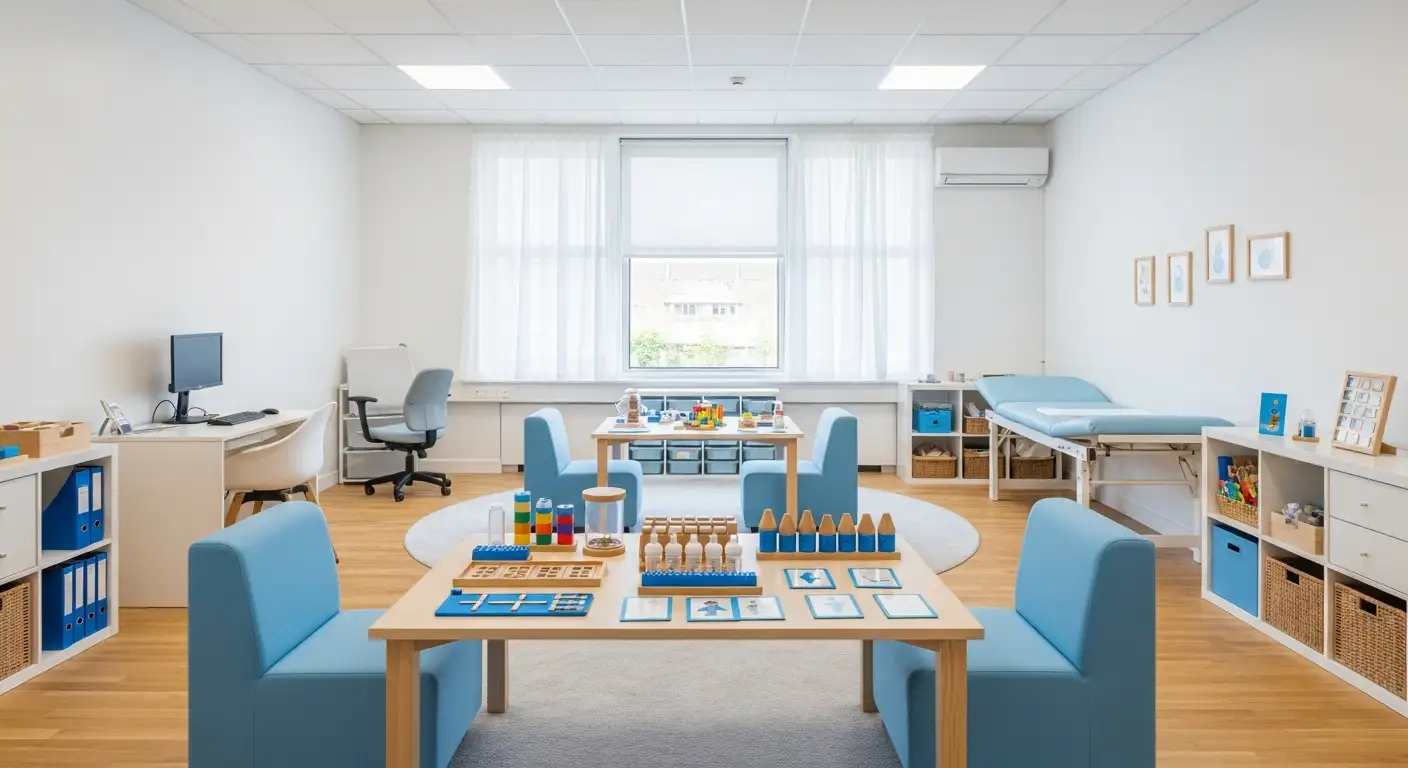Understanding and Teaching Social Rules in Children with Autism
Children with autism often face unique challenges when learning social cues and norms that many take for granted. Developing these skills is crucial for their successful participation in community and social settings, fostering friendships, and increasing overall happiness. This article explores effective strategies, educational approaches, and practical tools to help children with autism understand and follow social rules, emphasizing the importance of tailored interventions and real-world practice.
Fundamentals of Social Skills Development in Autism
What social skills are and how they naturally develop
Social skills encompass the rules, customs, and abilities that guide how we interact with others. These skills include behaviors like making eye contact, starting conversations, understanding facial expressions, and knowing when to listen or speak. Typically, children learn these skills gradually through everyday interactions and observation, enabling them to participate successfully in their communities.
However, this natural development isn’t always straightforward for everyone. Children with autism may find it harder to pick up social cues or follow social norms, which can impact their ability to form friendships and engage in social activities.
Challenges faced by children with autism in social interactions
Children with autism often experience specific difficulties that make social interactions challenging. For example, they might interpret communication very literally, which makes understanding tone of voice, body language, and facial expressions difficult.
Common behaviors include difficulty maintaining eye contact, initiating or continuing conversations, and recognizing social cues. They might also rely on repetitive language, gestures, or alternative forms of communication like picture cards. Additionally, understanding the subtle
The Role of Professionals and Structured Programs
Supporting social skills development in children with autism involves a team of dedicated professionals and targeted programs. Educators, speech therapists, occupational therapists, behavioral therapists, and school psychologists each contribute their expertise to foster social understanding and interactions.
Specialized, evidence-based programs like PEERS at UCLA have proven effective. This particular 16-week program teaches essential social skills and offers guidance on topics such as dating and friendships, yielding lasting benefits into adulthood.
Social skills groups further complement these efforts by providing structured practice opportunities. These groups emphasize clear, concrete actions, diverse scenarios, and foster self-awareness and confidence. They serve as safe spaces where children learn to navigate the grey areas of social interactions, making use of activities like role-playing, social narratives, and personalized teaching stories.
There are also many practical tools to support social learning. Free social story videos covering topics like eye contact and device management help children understand social cues. Websites offer activities including emotion cards, role-playing scenarios, and social skills groups that promote interaction and emotional recognition.
Specialized kits from organizations such as the VCU Autism Center provide lesson plans, communication inventories, and AAC resources. These tools assist in promoting functional communication and social exchanges.
Using a combination of professional support and structured, evidence-based programs helps children with autism develop social skills that are vital for community participation, friendships, and overall happiness.
Teaching Social Cues and Expectations: Strategies and Support Tools

How can parents and caregivers teach social rules and improve social skills in children with autism?
Parents and caregivers play a crucial role in helping children with autism learn social cues and develop meaningful social skills. Using evidence-based methods such as social stories, role-playing scenarios, and explicit teaching of expectations provides concrete learning experiences. Visual supports, like facial expression charts or 'face biscuits,' help children recognize and interpret emotions effectively.
Incorporating these tools across various settings ensures that children can generalize their skills beyond structured therapy or home environments. Structured playdates and participation in autism-friendly social groups offer safe spaces for practicing peer interactions. School professionals, like special educators and speech therapists, can reinforce these skills through classroom-based programs.
Organizations including Seattle Children’s Autism Center offer valuable resources and tailored interventions that support families in nurturing social growth. Consistency, patience, and positive reinforcement are essential as children learn to navigate social expectations and build friendships.
Understanding and Navigating Grey Areas in Social Interaction

The idea that social rules are more like guidelines than strict laws is crucial in teaching children, especially those with autism, how to navigate social situations.
Social interactions often operate in a space filled with grey areas—situations where appropriate behavior isn't always black and white. These grey zones require flexibility, critical thinking, and adaptability.
Teaching children about these grey areas encourages them to develop social awareness and resilience. Instead of relying solely on fixed rules, children learn to interpret context, read social cues, and adjust their behavior accordingly. This approach supports the development of emotional intelligence and fosters better social relationships.
One effective tool to promote this understanding is the 'Reputation in Moderation' Scale. This scale helps children become aware of their social behaviors and understand how their actions influence their reputation. It emphasizes that most social actions fall into a grey area, rather than strict right or wrong, encouraging self-awareness.
By focusing on flexibility and self-regulation, children are better prepared to handle real-world interactions confidently. They learn to balance following social norms with being authentic and respectful, mastering the art of navigating grey areas in everyday life.
| Concept | Description | How It Helps |
|---|---|---|
| Social Rules | Norms guiding behavior | They are guidelines, not rigid laws |
| Grey Areas | Situations with no clear rules | Promote flexibility and adaptability |
| Self-Awareness | Understanding one's behavior | Encouraged through tools like the 'Reputation in Moderation' Scale |
| Practical Strategies | Visual aids, social stories, role play | Make unwritten rules clearer and approachable |
Understanding these aspects makes social interactions less stressful and more inclusive for children on the autism spectrum, empowering them to build meaningful friendships and participate actively in their communities.
Behavioral Interventions and Generalization of Skills
 Teaching social skills to children with autism often involves structured, evidence-based approaches that promote learning and real-world application. One proven method is multiple-exemplar training (MET), which has shown to effectively establish rule-governed behavior (RGB). In studies, children responded accurately to new, untrained rules after just a few training sessions, indicating strong generalization. This type of training typically involves teaching children to understand 'if/then' rules, emphasizing behaviors and their consequences, both desirable and undesirable.
Teaching social skills to children with autism often involves structured, evidence-based approaches that promote learning and real-world application. One proven method is multiple-exemplar training (MET), which has shown to effectively establish rule-governed behavior (RGB). In studies, children responded accurately to new, untrained rules after just a few training sessions, indicating strong generalization. This type of training typically involves teaching children to understand 'if/then' rules, emphasizing behaviors and their consequences, both desirable and undesirable.
The importance of reinforcing responses to both familiar and novel rules cannot be overstated. Consistent reinforcement during training helps children apply and adapt these rules across various settings, fostering flexibility and confidence.
Research highlights that regular, repetitive practice and reinforcement enable children, especially those on the autism spectrum, to transfer learned social behaviors into everyday situations. This generalization process is crucial for improving social interactions and supporting long-term social success.
In summary, evidence-based interventions like MET focus on creating adaptable learning experiences. When combined with reinforcement, these strategies help children navigate complex social cues, enabling them to thrive socially across different environments.
Measuring Progress and Encouraging Autonomy in Social Development

What tools are available to assess social skill progression and self-awareness?
One useful instrument is the 'Reputation in Moderation' Scale, designed to teach children self-awareness about their social behaviors and how they are perceived by others. This tool emphasizes that most social interactions fall into a grey area—not strictly right or wrong—helping children understand that flexibility and judgment are part of social competence.
Using the scale, children learn to reflect on their actions and understand the impact on their relationships. It promotes the idea that while rules are helpful, adapting to different social contexts involves understanding nuances and making appropriate choices.
How does the '6 second rule' support behavioral management in autism?
The '6 second rule' is a practical guideline in managing behaviors associated with autism. It involves giving a child about six seconds to process information or respond to cues, such as instructions or emotional triggers.
This brief pause provides enough time for the child to understand what is expected and to regulate their emotions before reacting. Incorporating this rule into daily routines can reduce frustration and prevent escalation of challenging behaviors.
It fosters patience and supports emotion regulation, especially when combined with visual aids, safe spaces, and supportive communication strategies.
How can progress in social skills be observed and encouraged?
Progress can be tracked through consistent observation of behaviors in various settings, supported by structured social skills programs, such as those involving role-playing or social narratives.
Encouraging children to navigate the 'grey areas' of social interactions encourages flexibility and self-awareness. Experiences like participating in social activities or group games help children practice rules, adapt to peer interactions, and build confidence.
Ultimately, combining assessment tools like the 'Reputation in Moderation' Scale with supportive strategies like the '6 second rule' provides a comprehensive approach to fostering independence and social competence in children with autism.
Fostering Inclusion and Real-World Practice for Social Success
 Building social skills through real-life experiences plays a vital role in enhancing community participation and fostering meaningful relationships. Engaging children in activities such as community events, playdates, or social outings provides authentic opportunities to practice social interactions in varied settings.
Building social skills through real-life experiences plays a vital role in enhancing community participation and fostering meaningful relationships. Engaging children in activities such as community events, playdates, or social outings provides authentic opportunities to practice social interactions in varied settings.
Creating inclusive environments that celebrate neurodiversity and individual differences helps children feel safe and accepted. When environments acknowledge diverse communication styles and behaviors, children—with or without autism—can develop confidence to navigate social situations.
Activities like games, social stories, and role-playing are effective tools to teach children about social rules and grey areas. For example, involving children in creating and adapting game rules encourages flexibility, understanding that social rules are guidelines rather than strict laws. These activities teach children to interpret and respond to evolving social cues, preparing them for real-world interactions.
What strategies can help children with autism understand unwritten social rules? Strategies that can help children with autism include explicitly teaching social norms by discussing and demonstrating them, using visual supports like prompt cards or social stories, and role-playing different scenarios. Encouraging children to ask questions and observe others helps in clarifying expectations. Reinforcing their strengths, such as written communication skills, provides additional clarity. Promoting understanding and acceptance of neurodiversity contributes to less stressful social experiences, nurturing adaptability and confidence.
Supporting Lifelong Social Success
Helping children with autism learn and navigate social rules is an ongoing process that benefits immensely from a combination of structured teaching, practice, and fostering an understanding of complexity and grey areas in social behaviors. By utilizing evidence-based interventions, developing self-awareness, and creating inclusive environments, parents, caregivers, and educators can empower children with autism to build meaningful relationships, participate fully in their communities, and lead fulfilling social lives. The journey requires patience, adaptability, and the willingness to support their unique ways of understanding the world, ultimately promoting confidence and independence in social engagement.
References
- Social skills and autism | Autism Speaks
- Helping children on the autism spectrum understand social cues
- Social rules for autistic and ADHD kids - Starfish Social Club
- Teaching Children with Autism to Follow Rules Specifying a ...
- Social Skills Training | Therapist Neurodiversity Collective
- [PDF] Social Skills Curriculum for Individuals on the Autism Spectrum
- Autism and Social Skills Development
- Social Skills Success for Students With Asperger Syndrome and ...
- Social Skills Training for Autism Spectrum Disorder: a Meta-analysis ...










